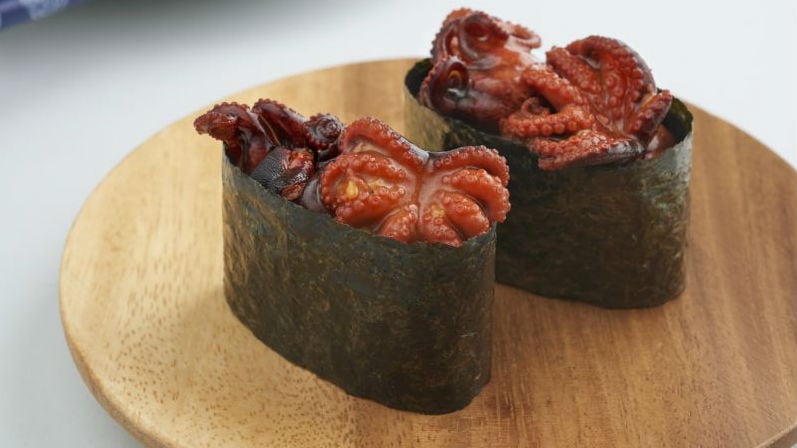Since starting its halal business last March, it has gone on to gain halal certification from the Malaysian Islamic Development Department (JAKIM) for seven food products.
The Kanagawa based firm currently supplies finished halal seafood products to Sushi King, a sushi chain in Malaysia, and has plans to go further afield.
FoodNavigator-Asia spoke to Yasunori Oka, the sales department corporate officer at Daiei Foods during the Food Japan 2018 exhibition held in Singapore to find out more.
The decision to develop halal products came after receiving requests from the Malaysian customers, Oka revealed.
Sushi King, its long-time Malaysian partner for more than 20 years, wanted to become the first to introduce halal sushi. As such, it received request to apply for halal certification for its processed seafood products.
Daiei later spent two and a half years gaining halal accreditation from the Malaysian authorities for two products, namely Tobikko (seasoned flying fish roe) and Chuka Iidako (seasoned baby octopus).
It has started to sell the two products to Sushi King last March, right after gaining halal certification.
Oka said that the firm has since secured halal certification for five more products, which have yet to go on sale.
“We want to expand the halal business, which is why we applied for halal certification for another five more products,” he said.
In Malaysia, the firm also sells halal processed seafood to about four distributors, besides Sushi King.
In order to expand overseas, it has intentions to enter the halal markets in Singapore, Indonesia, and the Middle East. At present, it is already supplying non-halal products to these countries.
For the expansion into Indonesia, it is in talks with Malaysian companies that operate in the country.
As for the plans for the Middle East, it is following closely on the potential alignment of halal regulations in the UAE and Malaysia. This is because he would need not to apply for an additional set of halal certification from the UAE authorities if the two countries harmonise their regulatory systems.
The firm aims to expand the percentage of its halal food business from 1% to 5% in the coming years.
While it sources its raw ingredients for its halal products from a range of countries, such as Thailand, Malaysia, Vietnam, Peru, the production process is completed in its factory that only handles halal food in Japan.
Halal and Japan
While the halal market was of negligible size in Japan, Oka said that they could work through the limitations by partnering with wholesalers.
Some of the challenges that Daiei Foods faced in Japan include its lack of logistics resources to only transport halal products. As such, it was not allowed to sell halal products in its home ground at present.
However, the firm has found a halal wholesaler who could potentially help to expand its reach in Japan.
“We found a halal wholesale in Japan and are in talks with them and might be able to sell halal food via the wholesale centre.”
There were about 150,000 Muslims in Japan, according to estimates from the Japan Muslim Association, a report from The Star said.



